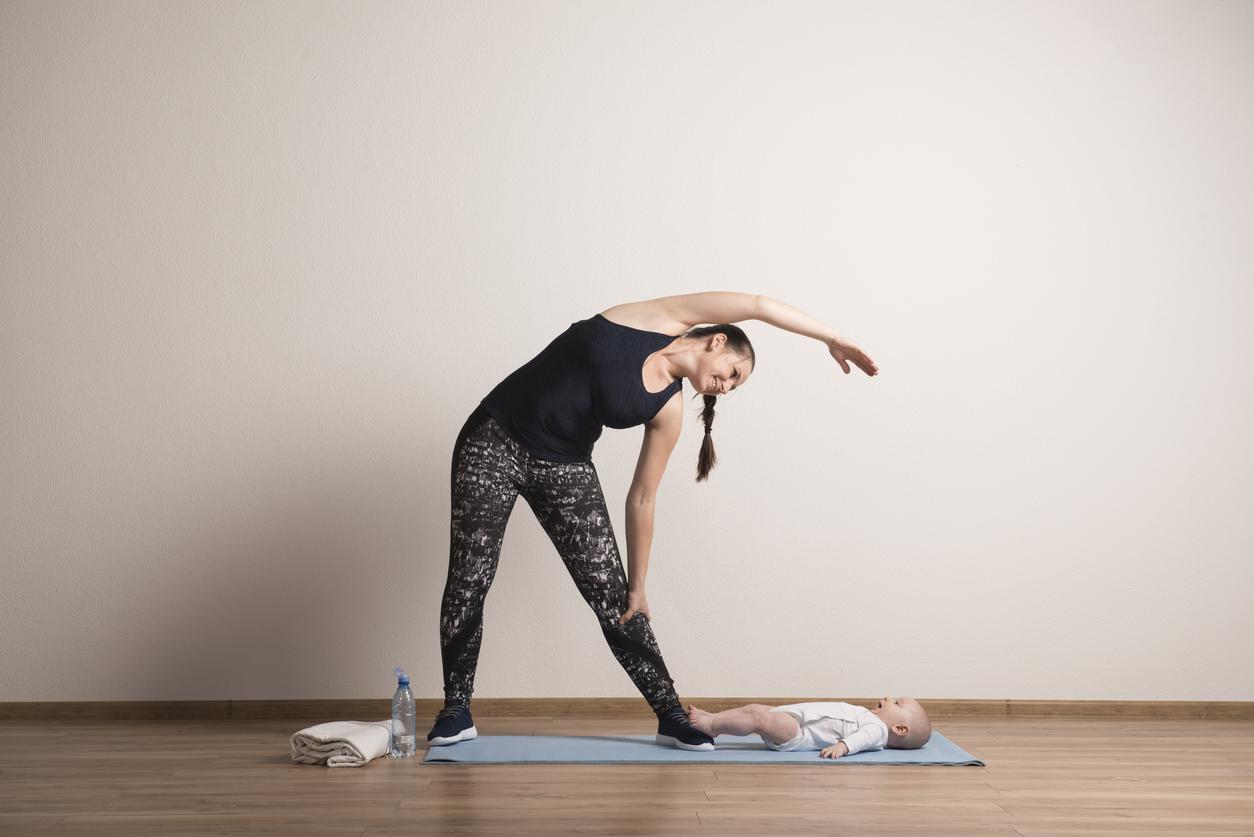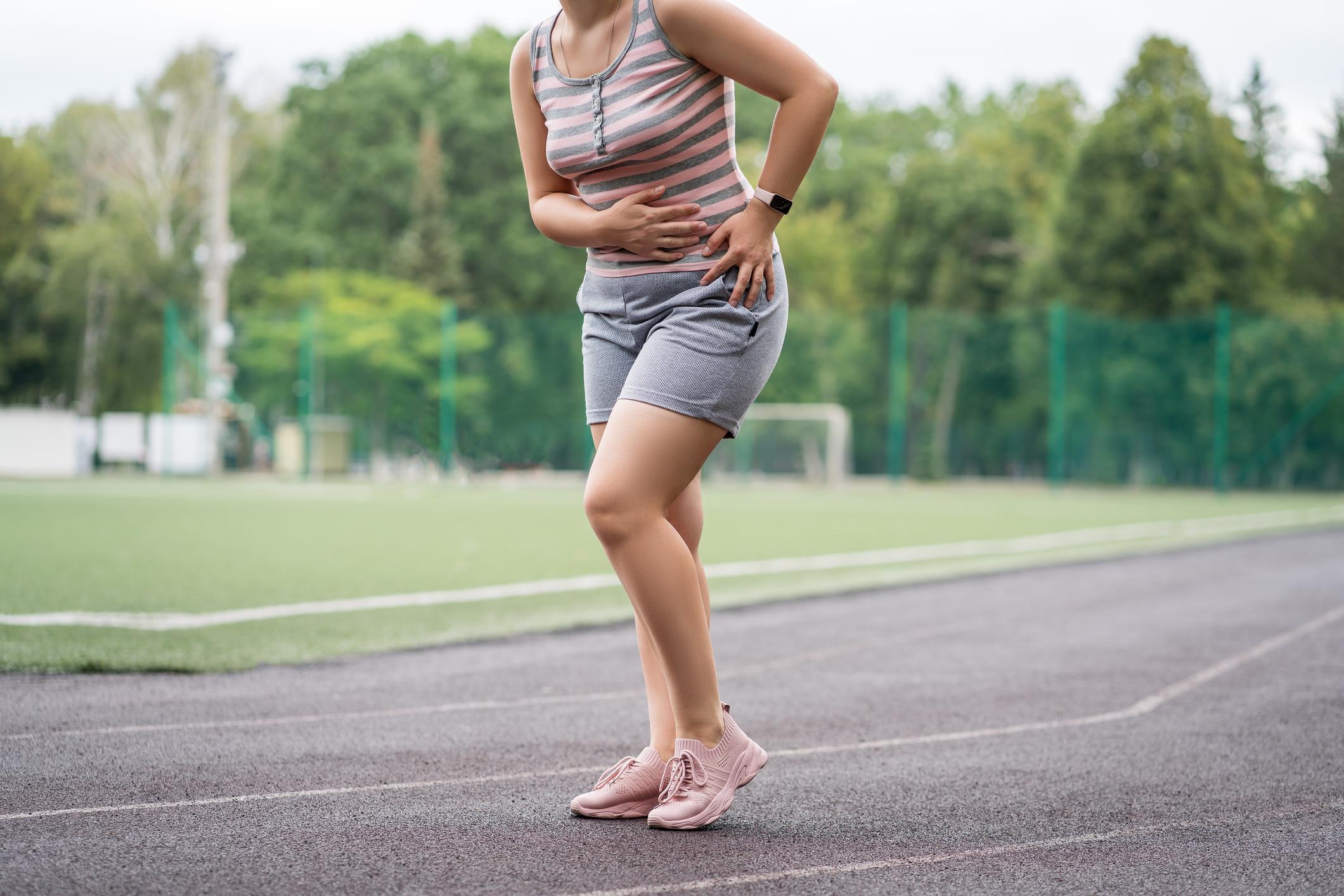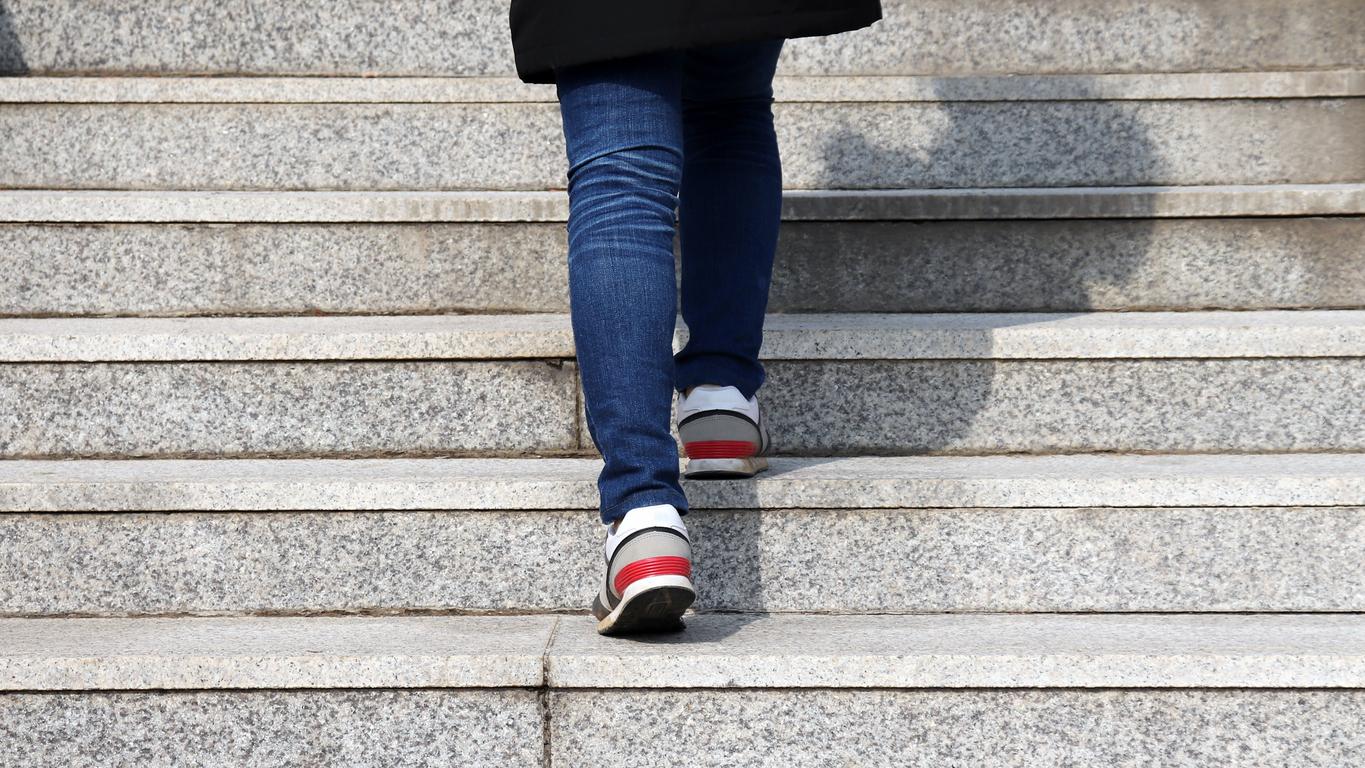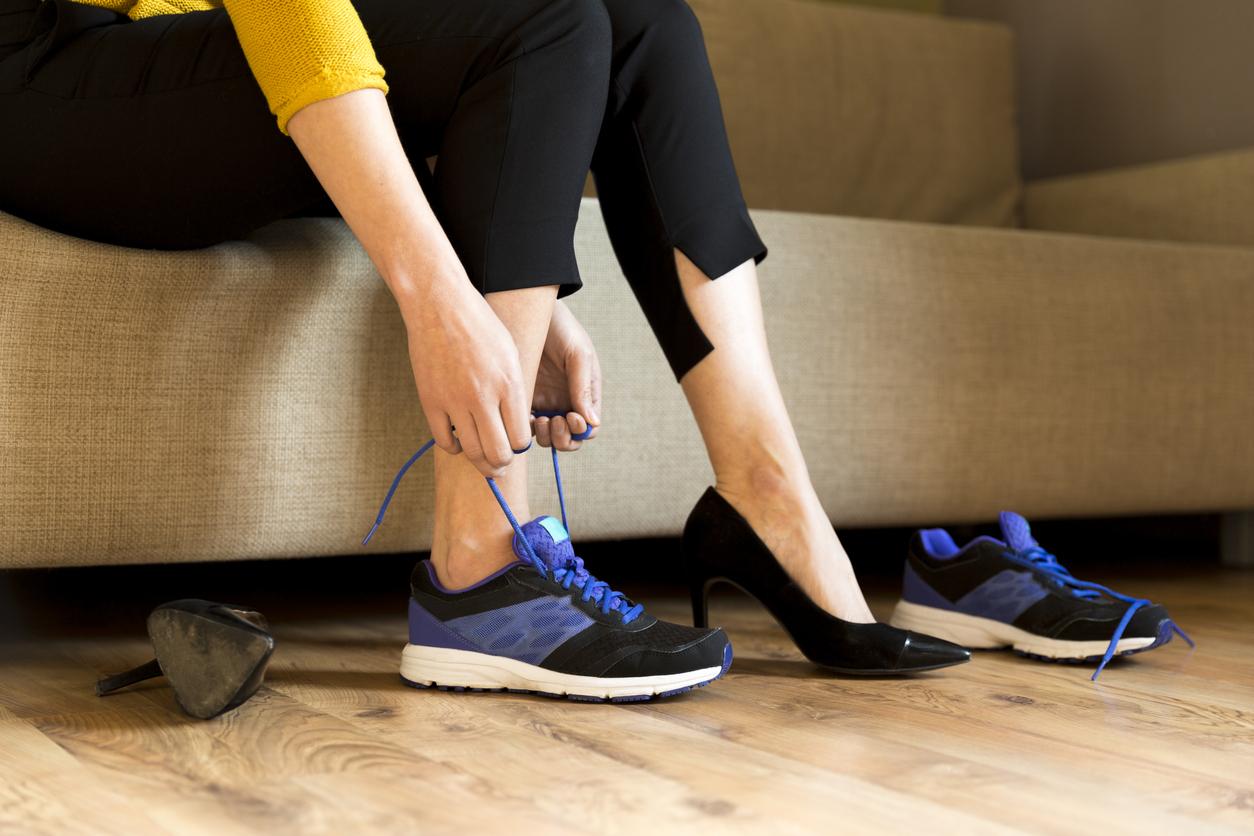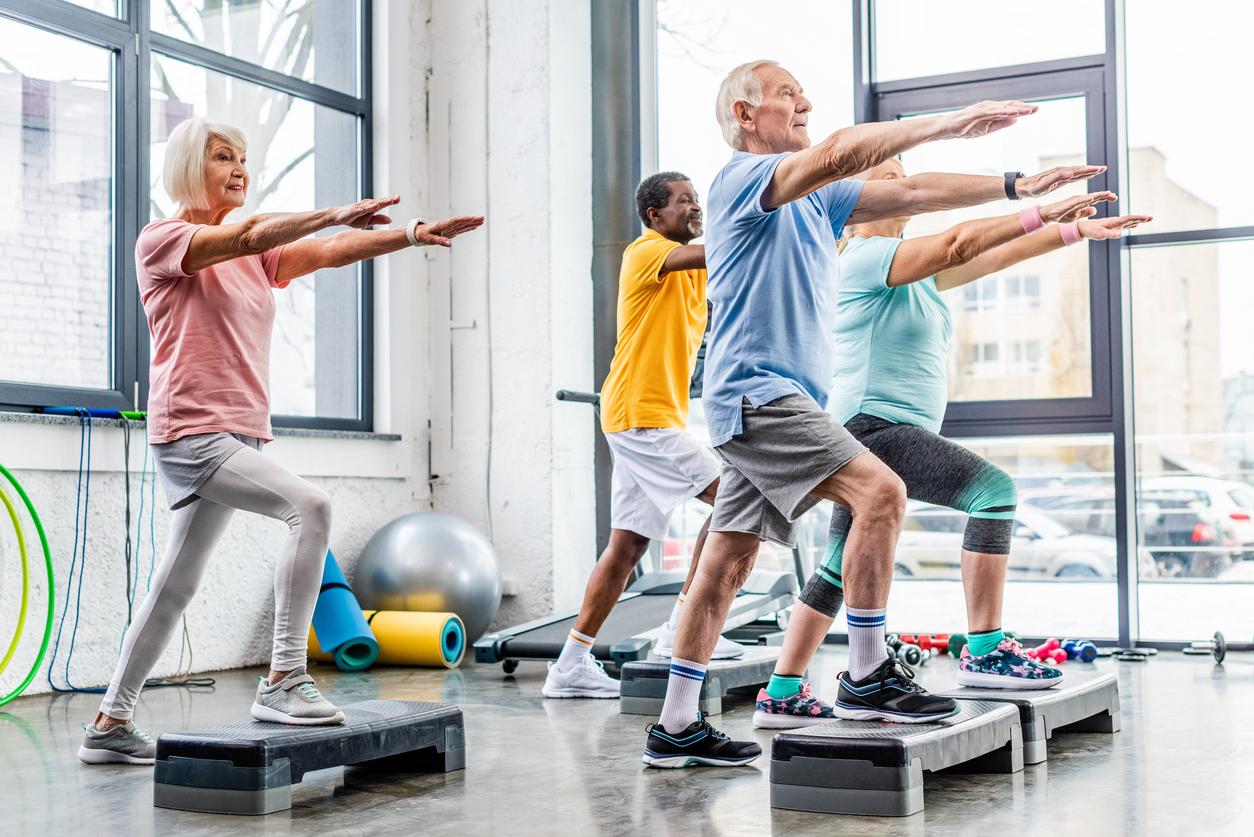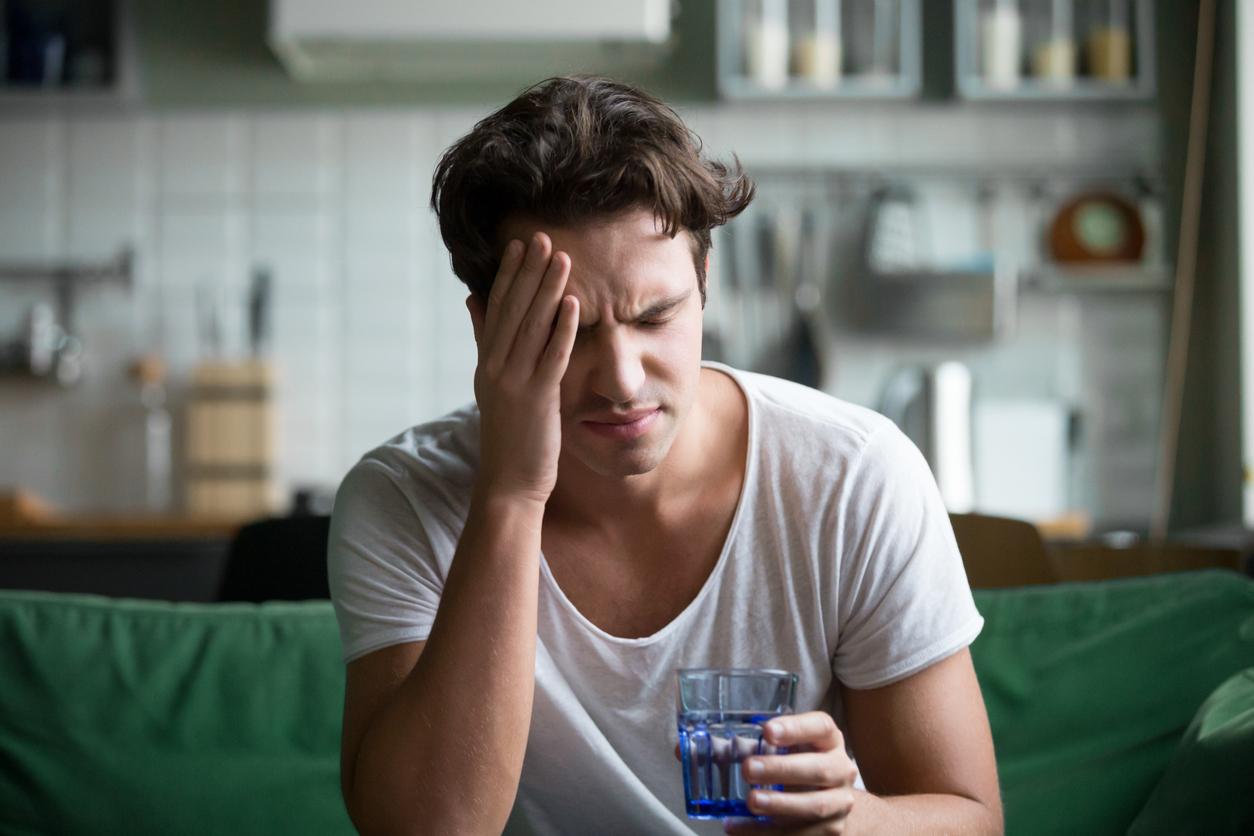Two associations are campaigning for the introduction of a new physiotherapy procedure in the month following the announcement of the diagnosis of Parkinson’s disease.
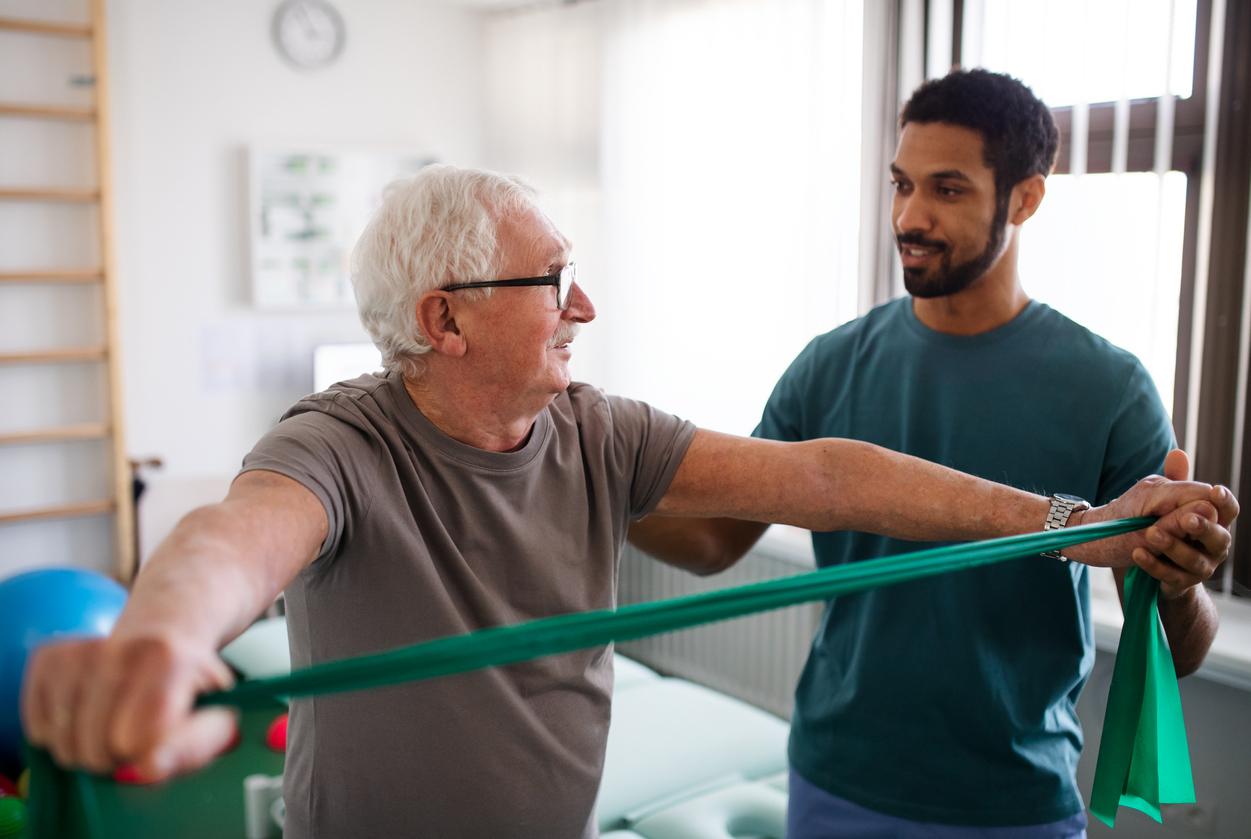
- Parkinson’s disease is a progressive neurodegenerative disorder with no cure.
- The prevalence of this pathology is constantly increasing in our country.
- Two associations are campaigning for the introduction of a new physiotherapy procedure in the month following the announcement of the diagnosis of Parkinson’s disease.
“We are going to present to you a new act of physiotherapy which we wish to promote and which we had the opportunity to show to deputies last week.” Based on a survey carried out in partnership with Viavoice among physiotherapists and patients, the France Parkinson association and the French Federation of Masseurs Physiotherapists Rehabilitators (FFMKR) are calling for the creation of a new act of care.
Parkinson’s disease: “access to physiotherapists is too late”
Concretely, this involves setting up a consultation carried out by the physiotherapist in the month following the announcement of the diagnosis of Parkinson’s disease.
Indeed, “access to physiotherapy treatment for patients is too late, which has an influence on the patient’s degree of autonomy (we can talk about a loss of luck, accelerated physical deterioration and more human help requested) : 61% of physiotherapists consider that patients are not taken care of at the right time”, justify the associations in a joint press conference.
“Research has also shown the importance of practicing physical activity in the management or secondary and tertiary prevention of Parkinson’s disease. Physiotherapy treatment is today recognized as being as important as drug treatments: this is also the only treatment that exists for certain symptoms such as posture, balance or even walking disorders. they add.
Parkinson’s disease: the role of the post-diagnosis interview
More precisely, this post-diagnosis interview would be intended to: assess the patient’s physical abilities and motor disorders; present the importance of physical activity and rehabilitation in Parkinson’s disease; transmit general information on the pathology and the care pathway; direct the patient to the right resources/people, and finally motivate the person, as recommended the HAS guide to the care pathway for Parkinson’s disease. The cost of such a consultation is estimated at 60 euros, remuneration which would include 45 minutes of interview and the writing of a mandatory report to be sent to the neurologist and the attending physician.
“Sport is Parkinson’s disease’s best friend”
“Lhe worst enemy in Parkinson’s disease is stress, and the best friend is sport. Sport is neuroprotective, and I have noticed it. After seeing several physiotherapists with contradictory opinions on physical activity, I finally met a specialist in Parkinson’s disease. He suggested a high-intensity exercise program for me. In my case, the improvements were multiple: disappearance of muscular stiffness in the legs, greater amplitude and better fluidity of movements, balance on both legs, better sleep, better morale and a return of will, which is essential in Parkinson’s disease. My husband will also tell you that I am in a much better mood. All these gains appeared for me after three or four weeks of practice.” testifies the patient Murielle Dimitri. “As a general rule, patients are obliged to regularly increase their dopamine intake, but practicing sports delays this need.she adds.
“I would just like to intervene to clarify the role of physical activity on Parkinson’s disease”, chain Laurent Rousseau, treasurer of the FFMKR. “Parkinson’s disease is the disappearance of certain cells in the brain that produce dopamine, a substance necessary for many things, including the coordination of involuntary movements. In patients, physical activity will stimulate the cells that still remain to make them more efficient and more adaptable to the situation. In other words, physical activity trains our cells to produce dopamine, to distribute it better, and therefore to have a better quality of life if we exercise regularly and intensively.he explains.
Parkinson’s disease: the positive effects of rehabilitation
France Parkinson and the FFMKR obtained the promise of transpartisan support for this project from a dozen deputies during a parliamentary workshop held on October 11. “We aim to integrate our reform into the PLFSS [projet de loi de financement de la sécurité sociale, ndlr] from 2025″, also indicates Laurent Rousseau.
According to the survey cited at the beginning of the article, Parkinson’s patients receiving physiotherapy are generally satisfied with their rehabilitation, which obtains an average evaluation of 7.3/10. “This satisfaction is explained in particular by the positive effects of rehabilitation: 70% of patients currently undergoing physiotherapy care say they are able to maintain the progress gained through this work”we can read in the report.
Post-diagnosis interview: only 20% of physiotherapists able to implement it for Parkinson’s disease
However, only 46% of physiotherapists would like to take more Parkinson’s patients into their patient base, a feeling shared more by young practitioners (56%) or those who already follow 10% or more people suffering from this type of pathology (57% ). And if the systematic establishment of a preventive interview with a professional physiotherapist at the time of diagnosis is almost unanimously welcomed by 9 out of 10 physiotherapists, only 20% of them ultimately declare themselves capable of setting it up (both ready, available and competent).
With 272,500 patients currently identified, 1 in 50 French people will be affected by Parkinson’s disease during their lifetime. The prevalence of this pathology is constantly increasing in our country, which has 2.5 times more patients than in 1990. “This phenomenon is essentially due to the aging of the population and probably to hormonal or environmental factors whose exact impact on the disease is not yet known,” concludes Jean-Louis Dufloux, president of the France Parkinson association.
Parkinson’s disease is a affection progressive neurodegenerative disease from which there is no cure.











